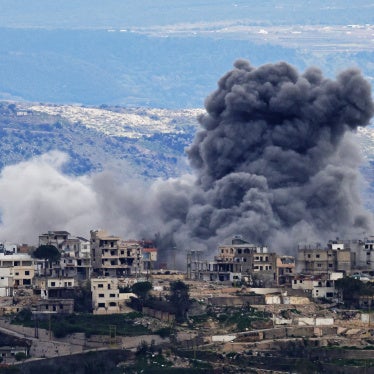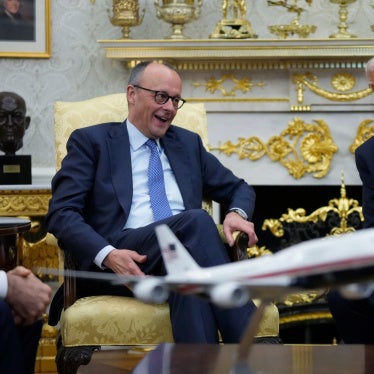“Mr. Brahimi, we are already building peace in Syria,” the woman said, although Lakhdar Brahimi, essentially the chief negotiator of Syria’s peace process, had already walked away. “We can help you if you let us.”
It would be hard to imagine a more revealing, and depressing, signal to half of Syria’s population. Invited to address a meeting on the role of women in the Syrian peace process, Lakhdar Brahimi left the room before hearing from any of the women in the room.
Last week, Human Rights Watch and the Women’s International League for Peace and Freedom (WILPF) met with the former French ambassador to Syria to express our deep concerns about the exclusion of Syrian women from the fragile peace processes, particularly from a set of crucial meetings due to take place in Geneva in January 2014. To his great credit, Ambassador Chevallier helped us set up a meeting in Geneva where Syrian women’s rights activists could speak directly to the international community about their right to participate fully and meaningfully in all discussions and negotiations about their future and the important skills, experience, and perspectives that they would bring to the negotiations.
Today, before a packed hall of delegates from member states, three Syrian activists spoke movingly and powerfully about what one called her beautiful, bleeding country, and the critical roles that women are already playing in delivering humanitarian aid, protecting civilians, and working for peace. It’s a shame that Brahimi, who delivered a short address at the meeting, was not present to hear them. This looks short-sighted. There is much research that demonstrates what should be common sense: if you exclude half the population from peace negotiations, sustainable peace is not possible. Mr. Brahimi missed an opportunity to enrich the January meetings and to increase the prospects that they will be successful.








